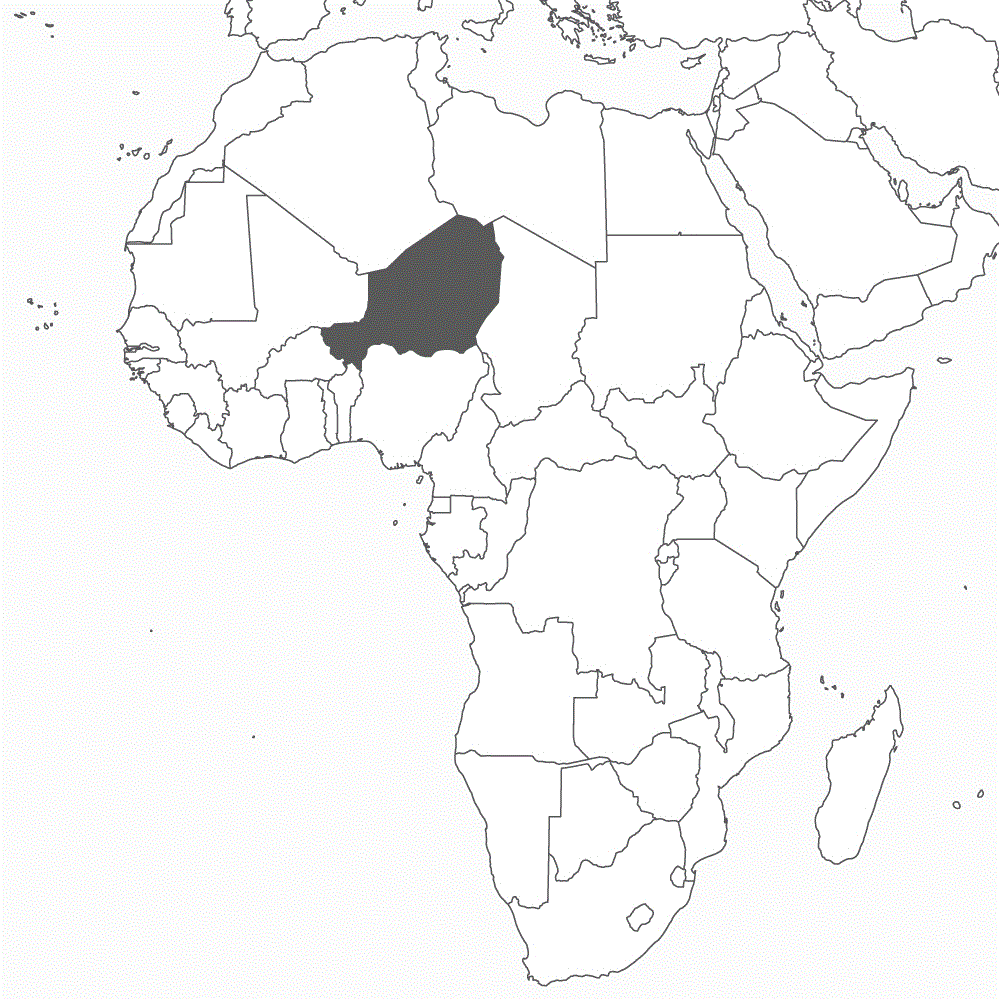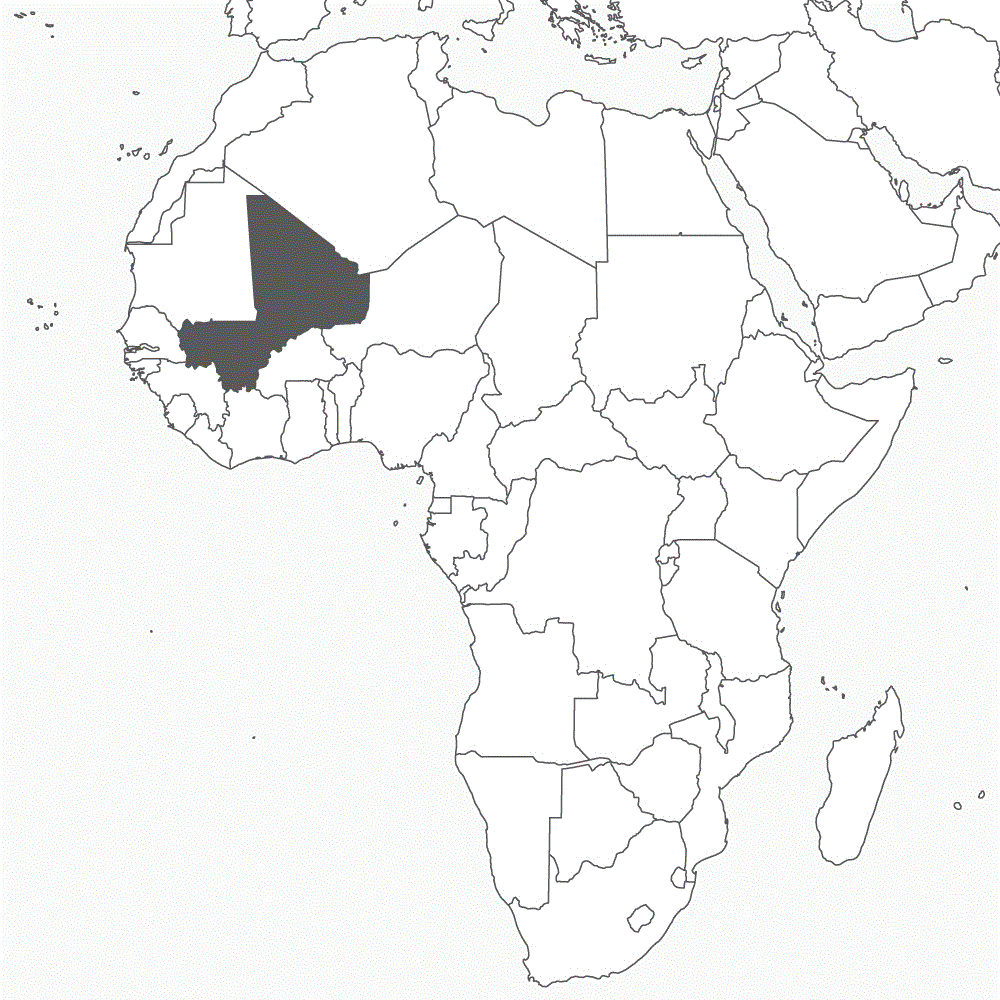“We Decide For Ourselves”
Due to its ambassador’s unauthorized activities in Niger, the EU has run into conflict with that country’s government. Niger forges ahead in its struggle for economic independence but is still under attack from Europe.
NIAMEY/BRUSSELS (own report) – Niger is defending itself against unauthorized EU activities on its sovereign territory and demanding the replacement of the EU ambassador to Niamey. This conflict was caused by the EU ambassador having distributed EU aid for victims of Niger’s devastating floods without Nigieren government authorization – even against its declared will. Following Niamey’s protests the EU has recalled its ambassador for consultations – probably in the hopes that Niger could feel dependent on this aid and concede in this dispute. This is not the case. Since the coup last year on July 26, Niger has been systematically freeing itself from its dependency, particularly on France, but also on other Western countries. Following the expulsion of Western armed forces – the Bundeswehr included – from its territory, it has been struggling to achieve economic independence and defending itself against intrigues by the French intelligence service. At a solidarity conference, last week, it was declared that they were “no longer taking orders from Paris” and finally deciding for themselves which political and economic development is good for their country. Read more
Attacks in the Sahel
Berlin intensifies debate on its Sahel policy. In Mali and Niger, speculation persists about possible foreign involvement in attacks on pipelines and military forces. Kiev acknowledges its support for attacks on Malian-Russian troops.
BAMAKO/NIAMEY/BERLIN (own report) – German government advisors are intensifying their debate on adjustments to Germany’s policy for gaining influence in the Sahel. In reference to the fact that in Central Sahel nations coup governments are in power, a recent study by the German Council on Foreign Relations (DGAP) proposes that in the future, it must be “more clearly defined” which regional forces will be considered “legitimate.” According to the authors, already in the past, Berlin had opted for “cooperation with the civilian population,” while Paris had favored “harsh punishment of the junta” in Mali and in Niger. The debate continues, while in the Sahel it is speculated that the recent attacks by the Tuareq separatists on Malian soldiers and Russian militia cannot be solely the work of pro-al Qaeda jihadis, but are possibly carried out also with French involvement. In Niger, an opposition group intent on overthrowing the government by force, was founded in Paris. At the same time, the Ukrainian intelligence service declared that it had participated in last week’s Tuareg attack on Malian and Russian targets. Read more
The German “cold base” in Niger
The Bundeswehr can maintain its military presence in Niger for the present. Berlin hopes for a permanent deal with the ruling junta on operations in the Sahel – not least to counter Russia in a geostrategic struggle with Moscow.
BERLIN/ROME/NIAMEY (own report) - The German armed forces are now, for the time being at least, able to maintain a military presence in Niger. Berlin now hopes for a more permanent agreement on the stationing of its forces at the airport outside the capital Niamey. The provisional arrangement has resulted from secret negotiations conducted by Germany’s Defence Ministry over recent months. Going forward, the aim is to operate a “manned cold base”, a kind of small-scale facility run by a low double-digit number of soldiers that will have periods of inactivity but can be used when necessary for military operations, such as evacuations on the African continent. The primary interest for Berlin, however, is that such a base would, to some extent, offer a counterweight to Moscow in Niger. Russia has been deploying military personnel to Niger and the region, gradually establishing itself as the leading military cooperation partner for states in the central Sahel and beyond. France and the United States have had to withdraw their troops from the region or been told to do so. Apart from Germany, Italy is the only Western country that still has a military presence in Niger. Read more
After Us the Conflagration (II)
Prior to the expiration of the ECOWAS ultimatum against Niger, warnings against the threatened invasion of that country are multiplying in Africa. Nevertheless, Paris and Berlin support ECOWAS.
NIAMEY/PARIS/BERLIN (Own report) – Sunday evening, calls from the EU to intervene against the junta in Niger have accompanied the expiration of ECOWAS’ ultimatum for the reinstatement of ousted President Mohamed Bazoum. The alliance of West African states ECOWAS had threatened to invade Niger, if the junta insists on the ousting of Bazoum. The putschists continue to do just that. They have also abrogated Niger’s military agreements with France on the deployment of French armed forces. ECOWAS has yet to respond. Paris has promised ECOWAS its firm support. Berlin has merely declared that it favored further negotiations before military action. The interests the EU states have in a pro-Western government in Niamey is primarily geostrategic. Niger is an important supplier of uranium, but its importance is noticeably diminishing. Over the weekend, not only have tens of thousands in Niamey expressed their opposition to the invasion, but Algeria’s president and Nigeria’s senate – on whose approval the country’s President Bola Tinubu depends – have also expressed their rejection, because a war threatens to devastate the entire Sahel. Read more
After Us the Conflagration
In the campaign against putschists in Niger, Berlin, Paris and the EU support ECOWAS, which threatens military invasion. Niger is the Bundeswehr’s last deployment location in the Sahel.
NIAMEY/PARIS/BERLIN (Own report) – Western states, including Germany, are backing the West African alliance ECOWAS in its campaign against putschists in Niger. On Sunday, ECOWAS imposed comprehensive sanctions on Niger and threatened military intervention in the country if the putschists do not back down by the end of the week. This threat of violence is being made despite the fact that Niger has been terrorized by Jihadis for years and would ultimately be at risk of descending into bloody chaos if ECOWAS troops were to engage in a war against the Nigerien armed forces. Observers speculate that Paris could allow ECOWAS to use its air base in Niamey. The population in Niger, rallying in the largest demonstrations seen in a long time, is protesting against a possible ECOWAS military intervention. The German government sees the putsch as a threat to the Bundeswehr’s last Sahel deployment location and, by supporting ECOWAS, accepts that a military intervention will plunge the Sahel into an unprecedented conflagration. Read more
“A Reliable Partner”
After the putsch in Niger, Berlin increases pressure on putschists. Ex-President Bazoum, extremely unpopular in the country, relied on Western powers and is considered a “reliable partner” by Germany.
NIAMEY/BERLIN (Own report) – Germany, France and the EU are increasing their pressure on the putschists and calling for the reinstatement of President Mohamed Bazoum’s government. France even threatens Niamey with military action. Bazoum has proven to be “reliable partner” for Europe, declared German Foreign Minister Annalena Baerbock and assured him her “full support.” Iin Niger, however, Bazoum and the ruling PNDS party, are “extremely unpopular,” according to Abdourahmane Idrissa, a political scientist from Leiden and Nigerien NGOs, because the government was brutally suppressing social protests, in reliance on its close relations with Western powers. In any case, the country’s armed forces are unpopular, because they have been operating in the Sahel for nearly ten years without success. The leader of a Nigerien NGO calls on the European states to finally “take the opinions and interests of the people in the Sahel seriously.” Their refusal to do so, is contributing to the growing rejection of their military presence in Niger. The putschists have taken up this issue. Read more
The Last Stronghold in the War Zone (II)
Following its failure in Mali, the EU prepares a military deployment in Niger. Until now, its president cooperated closely with the West, now Moscow’s influence grows also in his country.
BERLIN/NIAMEY (Own report) – Following the total failure in Mali, the EU is now preparing a military operation in neighboring Niger. The decision on the deployment, recently announced by EU Foreign Affairs Commissioner Josep Borrell, could already be made during the EU Foreign Ministers meeting in two weeks. Unlike Mali, whose cooperation with Russia is steadily growing, and Burkina Faso, which is also orienting more toward Moscow, Niger’s government, until now, loyally cooperated with the West. It already hosts numerous western troops, including a US base for drones and a Bundeswehr airlift base. Borrell had described the planned deployment as a “partnership mission” – acknowledging “that we have to be working with the Nigerian army on an equal basis.” Just recently Borrell had compared Europe to a “garden” and the “rest of the world” to a “jungle,” that the EU had to prevent from invading. As the EU seeks to entrench itself in Niger, that country, for its part, is beginning to open up to Russian influence – as had Mali, Burkina Faso and the Central African Republic before. Read more
The Last Stronghold in the War Zone
Berlin reorganizes the Bundeswehr’s assignment in the Sahel and prepares partial troop redeployment to Niger. Local protests against foreign miliary operations are increasing.
NIAMEY/PARIS/BERLIN (Own report) – The German Bundeswehr is preparing a partial troop withdrawal from Mali and a possible redeployment to Niger. Prior to today’s parliamentary debate on the continuation of the Sahel mission, it was reported that the German armed forces will terminate their European Union Training Mission (EUTM) participation in Mali. However, at the same time, there are plans to increase the German contingent in the UN Multidimensional Integrated Stabilization Mission in Mali (MINUSMA) from 1,100 to 1,400 soldiers. The German government is also considering new measures in neighboring Niger. For years, Germany had supported Niger’s repressive and armed forces – initially to ward off refugees and now also to train Niger’s special forces. The Bundeswehr could possibly consolidate its activities in the framework of a “training mission Sahel,” according to German Defense Minister Christine Lambrecht. Whereas Mali and, increasingly also Burkina Faso, turn their backs on the West and lean toward Russia, Niger is considered the last pro-western stronghold within the actual Sahel war zone. But protests are also increasing there. Read more
BERLIN/PARIS/BAMAKO (Own report) - Nearly five years after the European military mission was launched in Mali, experts are describing the country's situation as a disaster and warning against Berlin and Paris' further militarization of the Sahel. Mali "has never" seen "such a level of violence" as "currently," says a former French diplomat. The regional conflicts cannot be solved militarily, explained the International Crisis Group, a pro-western think tank, using the example of a Burkinabe province at the border with Mali, where, even though it was possible to suppress jihadi unrest, for the time being, the conflict can again flare up at any time, because the reasons for the unrest have not been dealt with. Nevertheless, the German government supports the creation of an intervention force of the "G5 Sahel" group of countries, which launched its first military operation yesterday. Despite the disastrous consequences of militarization, the Bundeswehr is using the Mali mission as the focus of its PR campaign. Read more
GERMAN-FOREIGN-POLICY.com
Information on German Foreign Policy: News + Interviews + Analyses + Background

